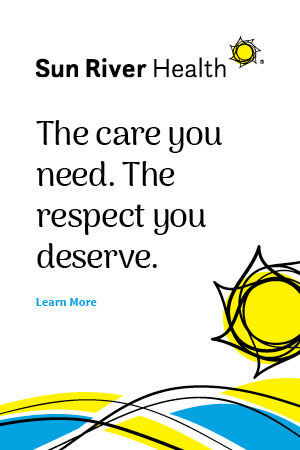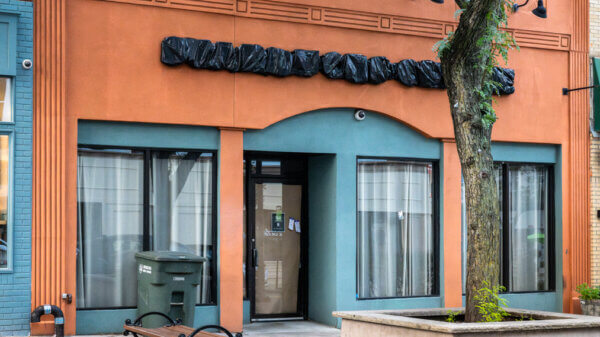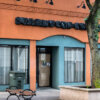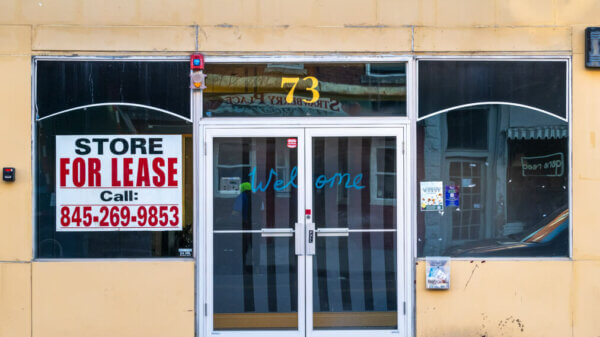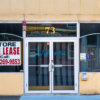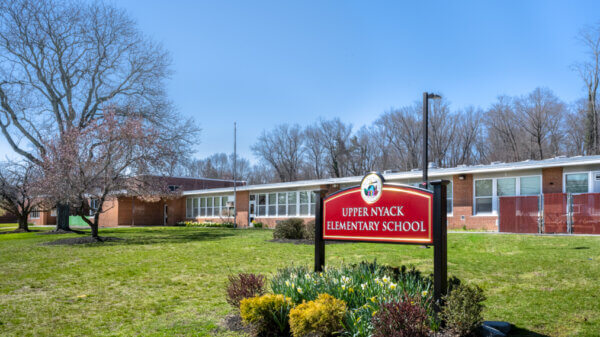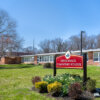
Rockland County, NY “bloc” vote districts during the 2013 Democratic Primary for county executive
by Frank LoBuono
Does voting make a difference? I think it does, evidenced most vividly, in two communities recently in the news: Ferguson, Missouri and Rockland County, New York.
When a white police officer shot and killed unarmed black teenager Michael Brown in the St. Louis suburb of Ferguson, the city erupted in racial violence, pitting the mostly black residents against the mostly white police force. Many leaders from around the country, both black and white, condemned the violence and slowly began to address the issues that may have caused such animosity. On the surface, the answer would appear obvious. The city’s population is overwhelmingly African-American. The city’s power structure, including the town council, the police, and fire departments is overwhelmingly white. However, it was not always like this. Ferguson, which had been a middle-class, white suburb as recently as the 1960’s, saw it’s demographics change when mostly disadvantaged blacks were forced by gentrification in St. Louis to move there.
So, if the population changed to mostly African-American, why didn’t the power structure, as well? It’s not really hard to find the answer. African-Americans in Ferguson simply don’t vote. They haven’t in the past and they still don’t. In the last local election, only 12% of eligible black voters actually did. 12%. How can you accumulate ANY power if you have no base? Where is your voice? Why is this happening? You can make the case that too many African-Americans have become disenfranchised from so many years of election laws that discourage their participation in the process. And there is validity there. However, to effect change you must make the effort TO change. Sometimes, it may even take a herculean effort. But it must be made. Otherwise, it becomes a Catch-22, i.e. you spend endlessly amounts of time complaining about the fact that nothing ever changes so that no change can ever occur! You must take action, not make excuses. Even the Rev. Al Sharpton, the de facto spokesperson for African-American causes, attempted to shame Ferguson’s black population to action by saying “if you do not vote your children will be ashamed of you.” Think about it. If Ferguson’s African-Americans could mobilize to vote with the same passion and intensity that they recently took to the streets to protest the death of that young man they could wrestle enough power back to change of their own community. Remember what Gandhi said: Be the change you would like to see in the world.
On the other end of the spectrum is the Hasidic and ultra-Orthodox Jewish community located in Orange and Rockland Counties, New York, particularly those at New Square and Kiryas Joel. Both of those communities, along with a host of others, are populated exclusively by members of a devout Jewish sect. They are insular, if not isolated, mimicking in many ways the shtetls of Eastern Europe. They dress the same, pray the same, talk the same, and VOTE the same. Yes, members of these communities vote as one. And vote they do – often by the thousands. They vote in their own self interest as guided by their community religious leaders. And they are effective. In fact, they are so effective with their “bloc votes,” that they often overwhelm any opposition. The POWER of their vote is validated by the fact that virtually every candidate for state or national office makes an official visit to one of, if not all, of these communities.
What they do is not illegal. In fact, it may even be brilliant. They use the system, as it was designed, to effect change on their behalf. However, even though it is not illegal, many now also see it as immoral. Since these communities are so insular, they do not participate in other town activities or encourage others to participate in theirs. Often, the interests of the ultra-Orthodox diverge from the interests of the general population. By using the power of the bloc vote, they often overwhelm any dissenting voice. By voting together, they can dominate local elections thereby eliminating any competing interests.
This is best seen in the impact in local school board elections. Orthodox communities do not send their children to public schools but to private yeshivas. Therefore, when elected to local school boards, they tend to vote against any improvement in schools that they do not benefit their children. This causes the local public schools to decay, sometimes, to the point of closure. The same thing happens on local town boards, as well. Candidates from the ultra-Orthodox community are elected by bloc vote and use their position to advance the cause of their own community, often to the detriment of the community at large. In response to these actions, many towns are now considering establishing voting districts so that each segment of the population may be properly represented. THIS is the power of the vote.
The symbol of power in ancient Rome was the Fasces. It was a bundle of reeds lashed together. The message is sublime and powerful: a single reed can easily be snapped. However, tie a bunch of the them together and it’s a whole different story. From this, the US took the slogan from the Latin, E Pluribus Unum – From Many, One. When it comes to voting, we may look at it yet another way: From One, Many. Use your power. Vote. It’s only wasted if you don’t use it at all.
Frank LoBuono has lived in Nyack for over 30 years writing and covering Rockland County in print, on TV and online. He works as a cameraman and an editor for a major TV News organization. You can read his blog at Talk-Frank.blogspot.com.
See also: Primary Education: What Happened To The Bloc?, 9/27/2013

